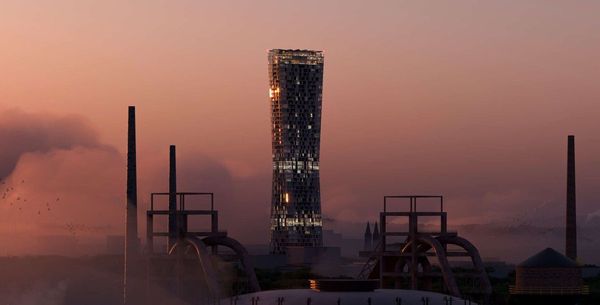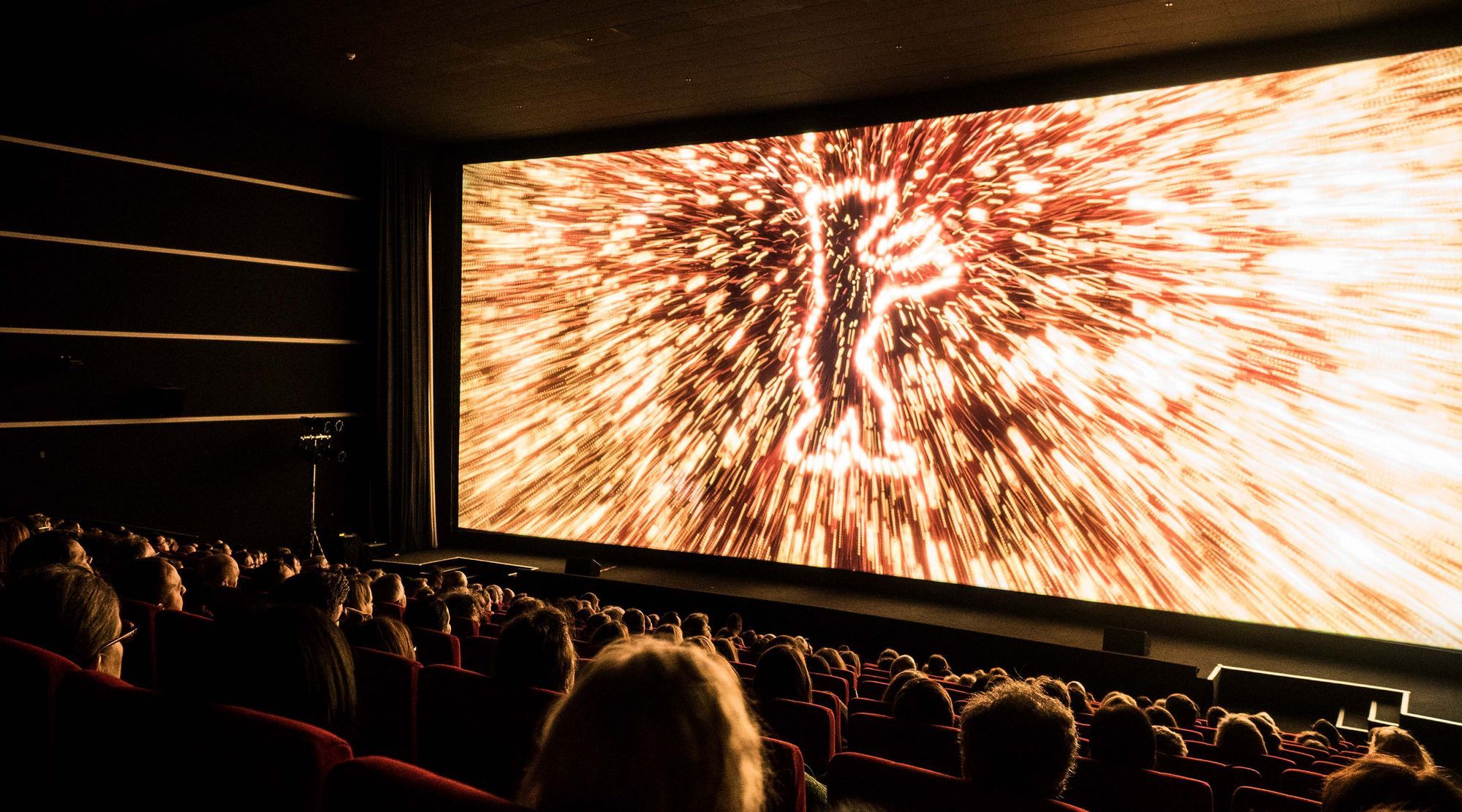Kristen Stewart, Steven Spielberg, Bono, and even Zelenskyy made an appearance at the 2023 Berlin International Film Festival, where besides Sean Penn’s war documentary, several regional films made their debut.
Although the Berlinale is a little less glamorous than its Mediterranean sisters, Cannes and Venice, its independence from Hollywood gives it perhaps the greatest professional prestige of any European film festival. Despite this, the event, taking place between 16 and 26 February, did not run short of big names: Steven Spielberg accepted his lifetime achievement award here, and the international jury of mostly independent filmmakers was chaired by a very much Hollywoodian actor (and director), Kristen Stewart, who has been described as the perfect bridge between US and Europe for her intellect and depth of work. Stewart is the youngest-ever jury president in the history of the Berlinale. The 10-day festival presented 283 films from 67 countries.
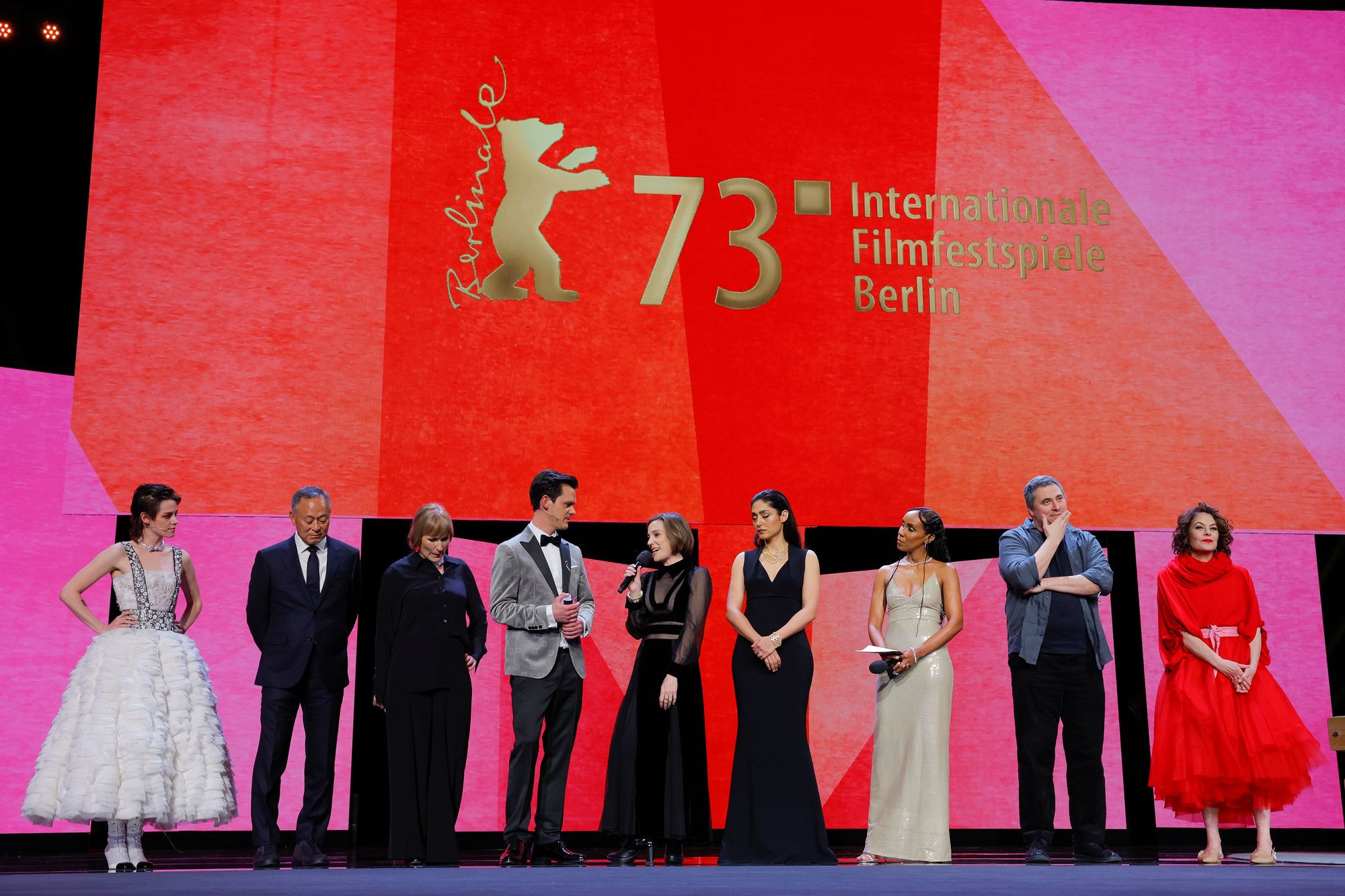
One-man war show
The biggest response was generated by Sean Penn and Volodymyr Zelenskyy, as Penn’s documentary on the war in Ukraine was presented here. The Ukrainian president was one of the festival’s guests of honor, but for understandable reasons he only attended via video call, arguing that culture, art, and film cannot be neutral from politics, especially when faced with mass murder and terror. According to him, filmmakers have two choices: either to stand up to evil or to remain silent and help evil. The organizers of the Berlinale opted for the former: they did not invite any Russian or Russian-backed films and painted its symbol, the Golden Bear, in the colors of the Ukrainian national flag.
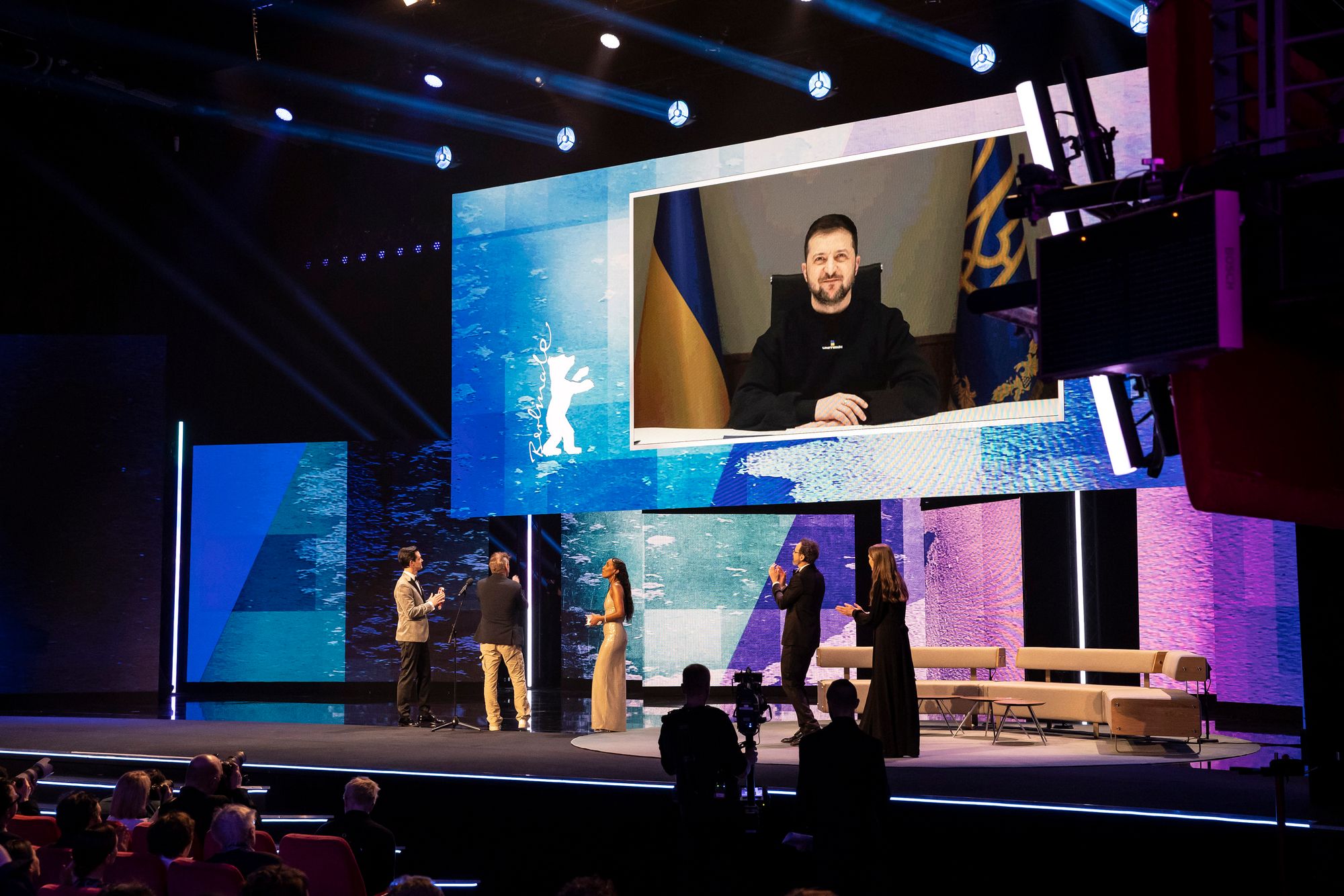
The audience gave a long, standing ovation for the speech, as well as for the documentary on the Russian–Ukrainian war, Superpower. However, critics were less enthusiastic about Sean Penn and Aaron Kaufmann’s documentary. Although the intention behind the film, Penn’s political activism, and the importance of discourse have been widely praised, several leading magazines claimed that the audience ends up getting to know much less of the protagonist, Zelenskyy, and much more of the creator, Sean Penn, who appears in almost every scene.
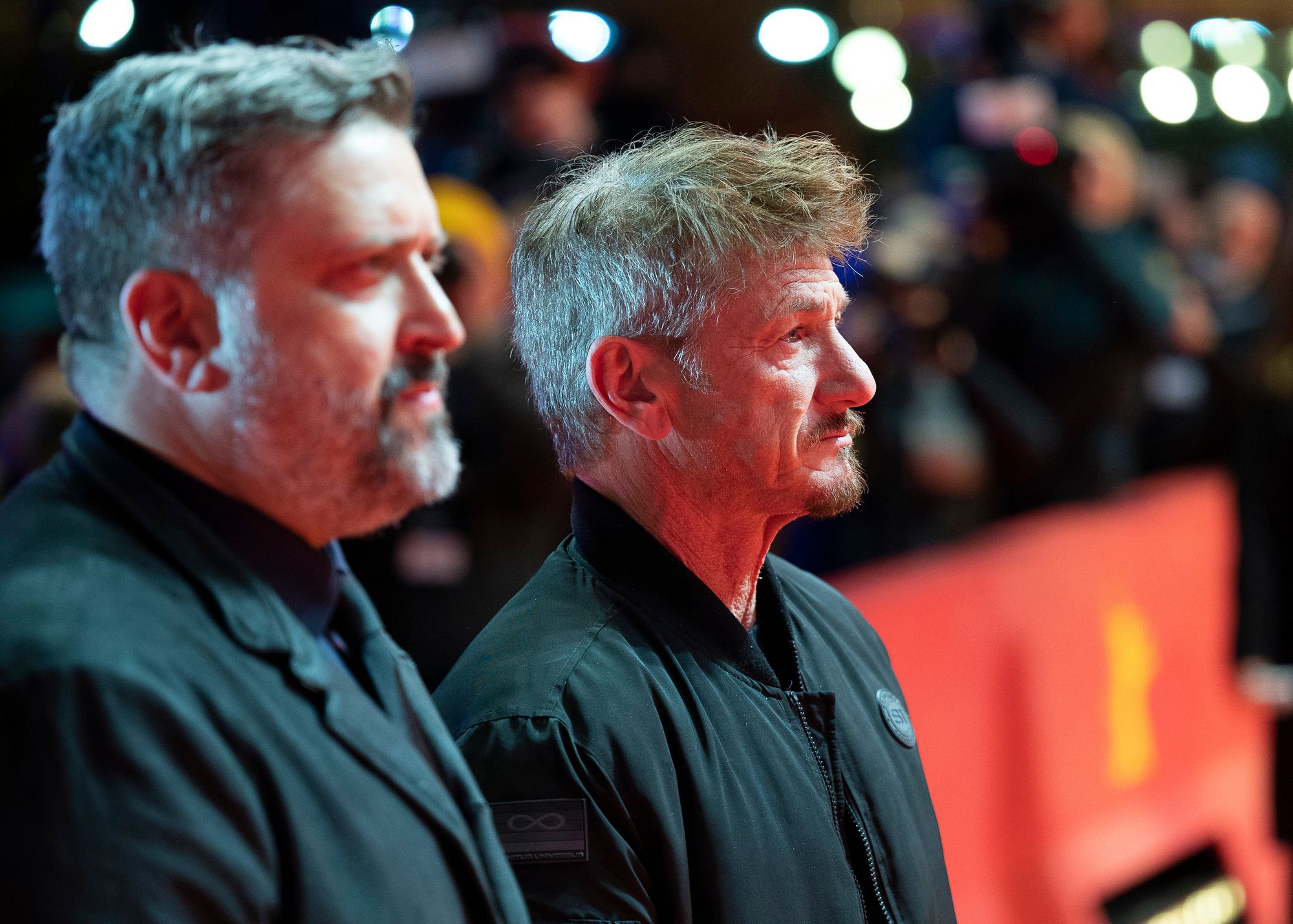
Bears overall
The festival’s highest prize, the Golden Bear, went to veteran French documentary filmmaker Nicolas Philibert’s Sur l’Adamant (On the Adamant), which captured the daily life of Adamant, a psychiatric outpatient care center on a stationary boat on the Seine in Paris, where the active therapy includes artistic creation.
The Silver Bear—Grand Jury Prize was given to Christian Petzold for his comedy Afire, the second part of the director’s forthcoming trilogy. The Silver Bear for Best Director went to Philippe Garrel, who made Le grand chariot (The Plough) with his children. João Canijo’s drama, the French–Portuguese co-production Mal Viver (Bad Living) received the Jury Prize and finally, the youngest winner in the history of the Berlinale, eight-year-old Sofía Oteró received the Silver Bear for Best Leading Performance for her role in 20.000 especies de abejas (20,000 Species of Bees). The Silver Bear for Best Supporting Performance went to Thea Ehre for her part in Bis ans Ende der Nacht (Till the End of the Night), while Angela Schanelec was awarded Best Screenplay for her German–French–Serbian co-production Music. The Silver Bear for Outstanding Artistic Contribution (music, set design, editing, cinematography) was granted to French cinematographer Hélène Louvart for Disco Boy, directed by Giacomo Abbruzzese.
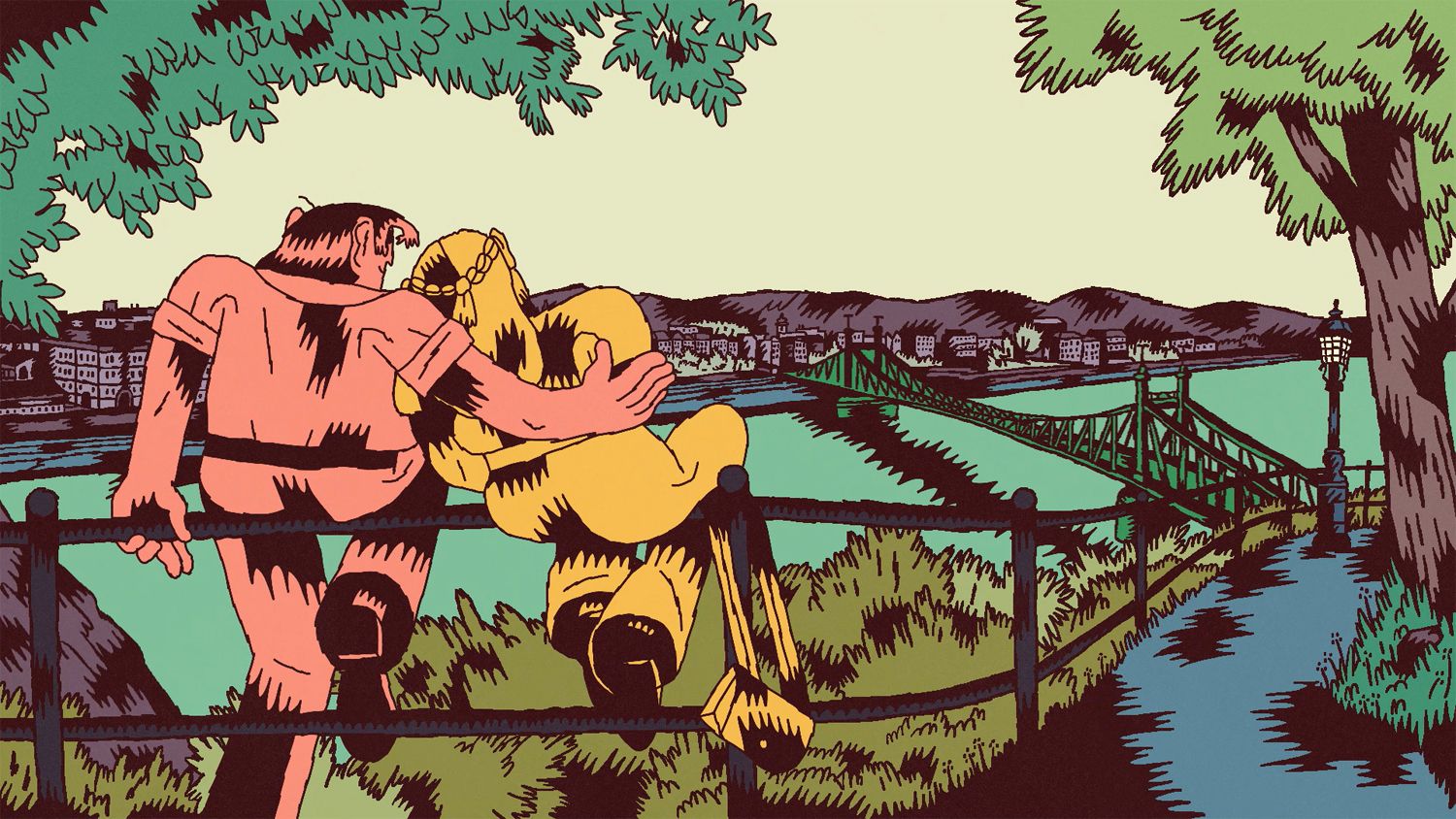
Animation, war, and short films from the region
The animated diploma film by Hungarian filmmaker Domonkos Erhardt, Szemem sarka (From the Corner of My Eyes) was presented in the Generation 14plus category and received a Special Mention from the jury. The film depicts the special moment when two young strangers’ lives intertwine for a moment of exchanging glances in the Budapest night. Prague-based Philippe Kastner’s Czech film Deniska umřela (Dede is Dead) about the death of a dog and the mourning process also received a Special Mention. In the documentary category, the theme of the Ukrainian war was once again raised: in the Encounters category, Vitaly Mansky and Yevhen Titarenko’s Shidniy front (Eastern Front), a Latvian–Czech–Ukrainian co-production, was highlighted. Although it did not win a prize, the screening of the Hungarian sci-fi animation by Tibor Bánóczki and Sarolta Szabó, Műanyag égbolt (White Plastic Sky), was a resounding success. The live-action and animated work is a post-apocalyptic body horror set in Budapest in 2123, when the city exists under a dome as most of the Earth’s fauna has gone extinct. The story centers on a couple, István (Tamás Keresztes) and Nóra (Zsófia Szamosi).
Sources: Variety, Népszava, Berlinale
Cover photo: Daniel Seiffert / Berlinale 2018
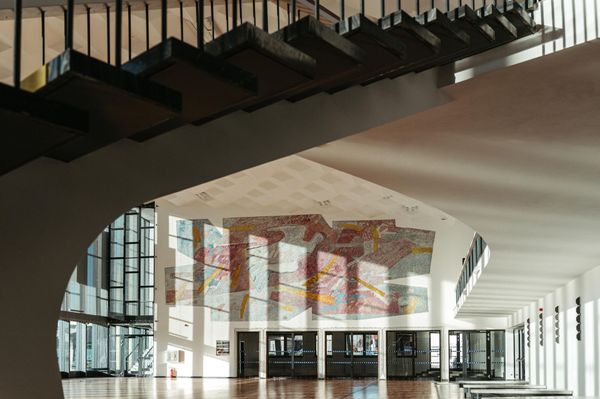
Sports hall from ruins—a promising project in Havířov

The design journey of a cable organizer
